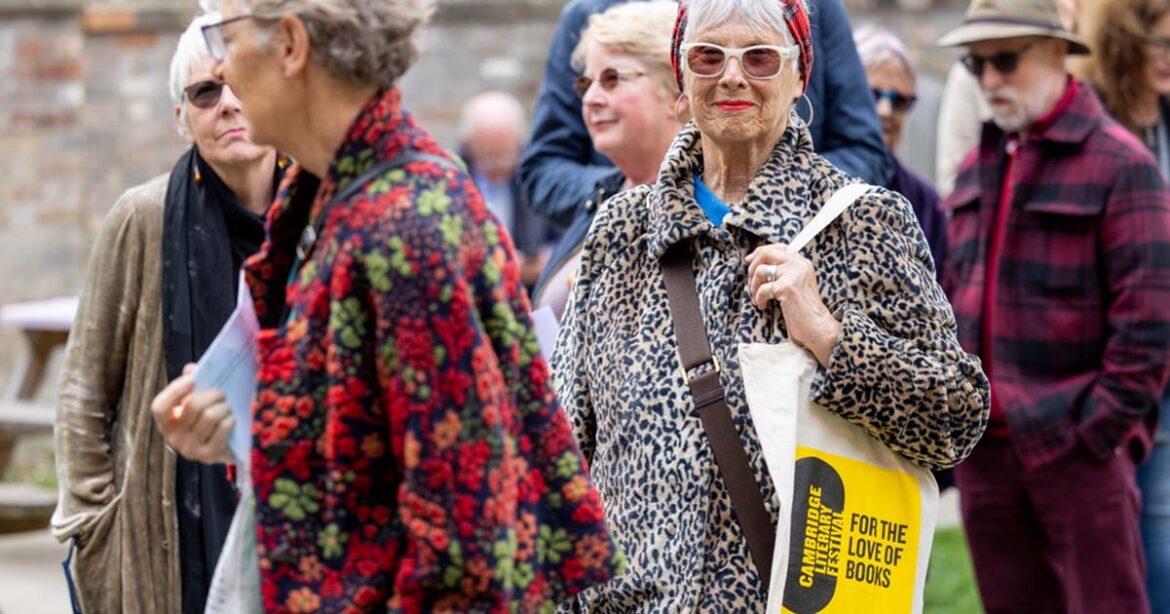Cambridge Literary Festival made a joyful return to live, in-person events, featuring long-missed faces old – and some new
Words by Miriam Balanescu
From talks on climate change to bodies, from democracy to bread, stories of religion, friendship and freedom, this Spring’s literary festival line-up was wonderfully diverse – though there were, underlyingly, some shared themes, among them an analysis of borders, temporality and an urge for change.
The festival was opened on Wednesday by literary heavyweight Douglas Stuart, fresh from touring his sophomore novel, Young Mungo, making for an impressive start. On Thursday, another storytelling giant, Julian Barnes, joined the New Statesman’s Tom Gatti on stage for an illuminating conversation around his latest novel, Elizabeth Finch. A talk nineteen years in waiting, Barnes’ premier appearance at the festival did not disappoint; a rich discussion spanning Roman England, paganism and Christianity, the poetry of Swinburne and Barnes’ childhood ensued, with insights into the writer’s stance on religion and contemporary cancel culture.
On Saturday, Clare Chambers met Rachel Cunliffe in conversation to shed light on her latest book, In Defence of the Unmodified Body. While potentially controversial terrain, Chambers’ argument for accepting our bodies as a “political principal”, with clear exceptions in the case of, as she states, urgent medical need or for our own flourishing, was well-reasoned and mind-broadening – sure to challenge the thought of both sceptics and non-sceptics alike.
It was a day of boundary-pushing ideas, with the timely New Statesman Debate dissecting the question, ‘This house believes that we get the leaders we deserve’. The evening saw Lola Olufemi, a ground-breaking feminist theorist, sit down with Lola Seaton. Though an informal chat between two old friends, the talk, focussed on Olufemi’s Experiments in Imagining Otherwise, rallied audience members to join her in actualising resistance – against insufficient systems, pitiful politicians and the lack of the present. Inspiring and powerful, the event both picked apart concepts of temporality, identity and utopia and was sure to encourage listeners to head out and contribute to creating a better world.
This Spring’s festival was closed by patron and long-loved favourite Ali Smith, speaking on her most recent book, Companion Piece. There were undeniable parallels between Smith’s concerns and those of the speakers leading up to her event: issues of migration, generational change, time and treatment of women were threaded throughout the evening. Tying together these themes, Smith’s event seemed the perfect close to five days teeming with gem-like anecdotes and enriching insights into 2022’s literary highlights.
The Cambridge Literary Festival Spring online package will be available for viewing from 27 to 29 May, with festival passes on sale from 7 May. All events this year were recorded, excepting Simon Armitage and Fitzwilliam Museum events.

